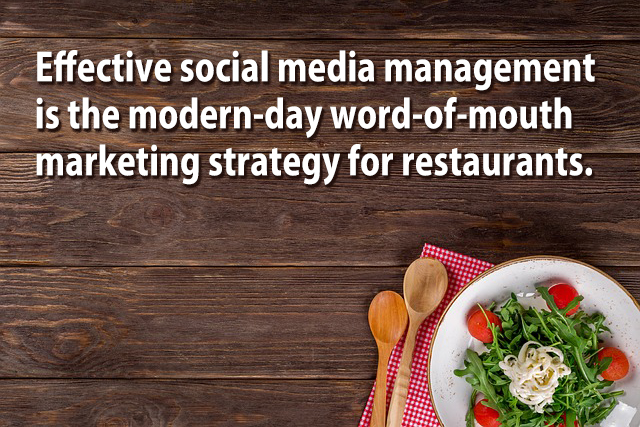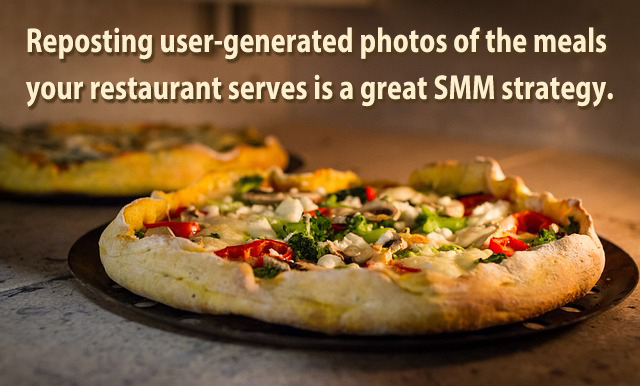Restaurants can turn food from a simple necessity to a delectable experience that has the power to bring people closer together. And even though word of mouth and outstanding service are among the best ways to advertise, turning your efforts to the digital front can amplify their effect.
That’s exactly why social media management for restaurants can be extremely beneficial to any business, big or small. Having a strong online presence can spread your good reputation to more people who will know that your establishment is the go-to place to savour a delicious meal with good company. In this guide, we will look into the aspects that go into restaurant social media management and how they can help you turn likes into reservations.
The Benefits of Social Media Management for Restaurants
Social media platforms have revolutionised how business owners connect with their customers, and this includes fine dining establishments. This means that many traditional advertising strategies can be augmented with a bit of digital marketing to yield even greater results.
One way to do this is to create a strong and engaging online presence that showcases what makes your restaurant unique from all the other ones in your area. Social media has the chance to shape public perception, drive both online and real-life traffic and most importantly – create a stream of regular clients.
So, why is effective social media management for restaurants important to owners? Simply put, it’s the modern-day equivalent of word-of-mouth marketing. When patrons share their positive dining experiences, share photos of mouthwatering dishes, or post glowing reviews, they’re essentially endorsing your establishment to their entire network.
If you want to learn how to become more easily discovered in your surrounding area, read our article “Local SEO: A Beginner’s Guide to Ranking in Local Search”.

Social Media Management for Restaurants Needs Specific Goals
All advertising efforts require a specific direction, and this is true for social media management for restaurants especially. Here are a few questions that anyone heading such online platforms should ask themselves:
- What are you trying to achieve with these social media platforms?
- Is it in-house traffic, takeaway orders or both?
- Are you trying to enhance brand visibility?
- Do you seek stronger community engagement?
Identifying Your Target Audience Is Crucial
Besides the baseline requirement of enjoying perfectly cooked meals, the target audience for a restaurant can be divided into many parameters. These could be a specific type of cuisine, like Asian, middle-eastern, tex-mex, and many more. They could also be a specific type of persona.
For example, there are establishments who tailor their aesthetic and menu towards more artistically inclined people, and other groups with similar interests. This has the benefit of creating a community space for them and establish your restaurant as the default meeting place for them.
This is why understanding your target audience is fundamental when it comes to social media management for restaurants. Another aspect of this is that different demographics may prefer certain platforms and types of content and tailoring your efforts to resonate with your ideal client is essential for effective engagement.
Understanding Your Brand’s Identity
Brand identity should shine in your entire social media presence. Being cohesive is what it’s all about. Just think of the most popular fast food franchises in the world (of course, you should aim higher than those) or even successful establishments in your surrounding area.
- What’s their unique selling proposition?
- What makes them better than the competition?
- How can your restaurant distinguish itself from those competitors?
Whether it’s the authenticity of your cuisine, the ambiance of your establishment, or the values you uphold, find out what you can offer to your customers that the others can’t. This can help you find a clear direction, which is important for social media management for restaurants.
Do you need a digital marketing company in the UK with a proven track record of success? Look no further than Zahara Consult – we offer a comprehensive suite of Social Media Marketing services for brands and businesses of all sizes.
Contact Us for a Free Consultation!

Superstar Meals: Creating Engaging Social Media Content
When it comes to social media management for restaurants, the adage “a picture is worth a thousand words” couldn’t be more accurate. Creating compelling and visually appealing posts is essential to grab the attention of anyone looking through your business profiles.
High-Quality Visuals: Photography and Videography
There is an understanding that the first mouthful is the one we imagine biting into when we see a great photo of a delicious meal. Since people are predominately visually oriented, investing in high-quality food photography is no-negotiable. Instagram is especially great for this type of content, which makes it probably one of the best tools in the arsenal of social media management for restaurants.
Your cuisine should be shown in its full glory with the help of a professional photographer and maybe even videographer. There are many ways to elicit the desire in viewers to visit your establishment when showing them what they can feast on. The colours, textures and general presentation of your dishes online serve that purpose.
And if you can’t get someone to photograph your delectable meals, don’t worry – here’s a Beginner’s Guide to Food Photography that will surely help you get on the right track.
Writing Captivating Captions
Your captions should be as enticing as the meals they are showcasing. While visuals are the initial hook, the text that accompanies your posts provides the context and personality that can turn a viewer into a loyal customer. This is why the written part of your post should be inviting and in a tone of voice that aligns with your brand identity.
Social media management for restaurants should be concise and to the point, yet still be informative and engaging. Since there’s a lot of competition in online spaces, you want to value your viewer’s time. This is why a well-crafted caption can be the difference between a passive scroll and an active like, comment, or share.
Get People Involved With User-Generated Content
One of the most potent forms of marketing is when your customers become your advocates. This is why encouraging your patrons to share their dining experiences by posting photos and reviews of your establishment is important in social media management for restaurants.
User-generated content such as this serves as an authentic testimonial that offers social proof which can sway potential customers in your direction. People are more likely to go eat at a place that has positive reviews and actual photos of the food it serves, taken by satisfied clients.
Stay current by incorporating trending and relevant hashtags into your posts
Using hashtags is important, as it increases your content’s visibility to a broader audience and can make your posts be discovered long after they’ve been published. There are a few guidelines that should be considered when it comes to using hashtags:
- Only use tags that align with your brand
- Use location-specific hashtags
- Consider a custom hashtag that is unique to your restaurant
Custom tags are a great idea when doing social media management for restaurants, as they encourage engagement and make it easier to find and curate user-generated content with far greater ease. Remember, the quality of your posts and their ability to engage on the platform will play a pivotal role in the success of your social media strategy.
Building a Content Calendar for Restaurant Social Media Management
There are two things that are important to restaurant social media management: consistency and time, and a content calendar helps to optimise both. Keeping a steady tempo is one of the keys to maintaining an active and engaged following, but maintaining that eagle’s eye view can be challenging.
This is why working with a content calendar can be extremely helpful, as it both outlines when and what you will post, but also allows for automatic uploading. This means you can edit and create posts in bulk and have the calendar publish them when the set time arrives.
Seasonal and Promotional Content
There are a few times a year when adapting your content and menu around a particular holiday can present a great opportunity for your business. In restaurant social media management, highlighting any seasonal promotions, offers or dishes can peak people’s interests, they way only a limited offering can.
A seasonal or promotional campaign also helps to keep your feed fresh and exciting in the eyes of your followers. Striking the right balance between consistent and fresh is important, otherwise your content risks becoming trite and repetitive, which is something you definitely don’t want.
Maintaining a Balanced Content Mix
A balanced content mix is just as important as a balanced meal. Variety is the spice of life, and the same applies to restaurant social media management. Balance your posts by including a mix of food highlights, behind-the-scenes glimpses, customer testimonials, and anything else that can pique the interest of your followers.
Why is social media management important for my restaurant?
Social media management is crucial for restaurants because it helps you reach a wider audience, engage with customers, build brand loyalty, and drive traffic to your establishment, making it a powerful marketing tool in the digital age.
Which social media platforms should I focus on for my restaurant?
The choice of platforms depends on your target audience and the type of restaurant you run. However, Facebook, Instagram, and TikTok are generally good universals. Instagram is particularly effective for visual content, while Facebook offers local business features.
What is the best way to respond to negative reviews on social media?
When responding to negative reviews, remain professional, empathetic, and solution-oriented. Address the specific concerns raised and offer to rectify the situation, as it’s essential to show that you care about customer satisfaction.


